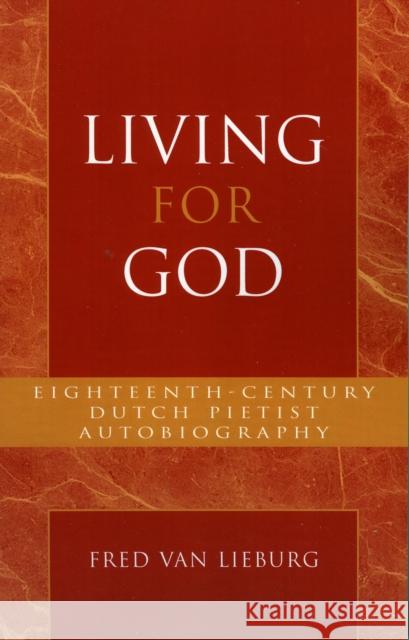Living for God: Eighteenth-Century Dutch Pietist Autobiography » książka
Living for God: Eighteenth-Century Dutch Pietist Autobiography
ISBN-13: 9780810851047 / Angielski / Miękka / 2006 / 192 str.
This book describes all aspects of daily religious life of pious Reformed people in the Netherlands between 1720-1820 on the basis of the autobiographies of 14 men and 6 women. Sources are explored thematically, with each chapter describing one section of Pietist life. After introductory chapters on the theological, cultural, and social context and the individual backgrounds of the autobiographers, collective surveys are given about youth, education, adolescence, conversion experiences, spiritual life, marriage, children, congregational life, social and economic life, and the production and reception of the autobiographies. The Dutch perspective was chosen so as to demonstrate that Pietism was not just a movement from the big European countries like Britain and Germany. Apart from its impact on East European and Scandinavian countries, Dutch Pietism is an important and essential part of the movement, at the one hand in the special context of the pluriform and tolerant nation, at the other hand as a 'bridge' between Anglo-Saxon and German Pietist movements. Focusing on Dutch Reformed Pietism may also give a correction to the dominant 'Lutheran' view, caused by the Germanocentric historiography of the movement. Dutch Pietism has also influenced the spirituality of many religious people in the Netherlands up to the present day, including descendants of emigrants in North America and in South Africa.











